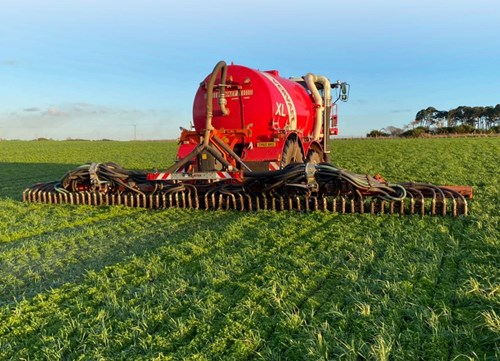EASR Regulations: What the Change from Paragraph 7s Means for Farmers and Distilleries

As of 1 November 2025, the Environmental Authorisation (Scotland) Regulations (EASR), implemented by Scottish Environment Protection Agency (SEPA) have replaced the former Paragraph 7 exemptions for spreading waste to land. The key changes include stricter reporting requirements and 5-hectare soil sampling requirements, meaning more samples are needed for larger fields. SAC Consulting has long managed the entire Paragraph 7 process for farmers and distilleries, and we continue to provide the same complete service under the new EASR framework.
For many years, Paragraph 7s provided a relatively straightforward way to spread waste materials like composts, digestates and slurries. Distilleries also relied on it to recycle valuable by-products such as pot ale and sludge, turning what might have been a disposal issue into a soil building resource. While that system worked, SEPA has now moved to a new approach, one that is risk-based, permit driven and more consistent across all environmental authorisations.
So, what has changed?
One of the most significant practical differences is the requirement for 5-hectare block soil sampling from 10-hectare block sampling. This doesn’t mean more frequent testing, but it does mean that large r fields now require more individual samples to cover the same area for example a 20-hectare field would now need four separate samples and analysis. This creates some additional cost, but it also offers an opportunity as better soil data leads to better nutrients planning, more targeted application and ultimately healthier soils.
Beyond sampling, EASR also introduces new expectations around evidence and record keeping. SEPA now requires applicants to demonstrate compliance more robustly and to provide clear documentation of what has been spread, where and why. The move away from Paragraph 7s to EASR Registration and Permits reflects SEPA’s focus on accountability, transparency and protecting the environment.
For many businesses, this can feel like added complexity, that’s where we can help. We know the system inside out. For years our consultants have completed the entire Paragraph 7 process for our clients both farmers and distilleries from assessing waste suitability and organising soil sampling to submitting paperwork and dealing directly with SEPA. With EASR now in place nothing changes in the level of support we provide. We continue to take care of the whole process so that you can focus on running your business.
Here's what that looks like in practice:
- Application management – Handling the complete SEPA Registration process from start to finish and can submit on your behalf.
- Soil sampling and analysis – Our team carries out 5-hectare block sampling, explains the results and links them back to nutrient planning.
- Distillery by-products – We work with distilleries to ensure by-products continue to be recycled responsibly and compliantly.
- Compliance and records – We put practical systems in place to make sure your documentation is ready for submission to SEPA when required.
- On the ground Advice – Our consultants continue to offer hands on guidance for safe and effective spreading.
The important thing to remember is that while the system has changed, our role hasn’t. We are still here to manage the process on your behalf, giving you confidence that your farm or distillery remains fully compliant.
EASR may feel like a big change, but it also provides a chance to strengthen soil management, improve sustainability and demonstrate environmental improvements. With the right support, it doesn’t need to be a burden.
If you would like to find out more about how the new regulations affect your farm or distillery, please get in touch with your local SAC Consulting office.
Five Top Tips:
- Understand the new rules: EASR has replaced Paragraph 7s, make sure you know what this means for your business.
- Plan for 5-hectare block sampling: larger fields now require more samples for compliance.
- Check your by-products: confirm the materials you spread remain viable under EASR.
- Keep accurate records: SEPA expects stronger record keeping and evidence than before.
- Reach out for advice: SAC Consulting can provide advice on transitioning from a Paragraph 7 to an EASR Registration or Permit.
Useful Links
- www.sepa.org.uk/regulations/waste/soil-improvement-using-waste
- www.sepa.org.uk/regulations/waste/activities-exempt-from-waste-management-licensing
Darlene Walker, Consultant, Darlene.Walker@sac.co.uk

Unearthed is the exclusive SAC Consulting members' monthly newsletter. Unearthed offers insights and tips from our experts on what we think is in store for farming and crofting in the coming months in order to protect and enhance your business.
Posted by Unearthed News on 12/11/2025
